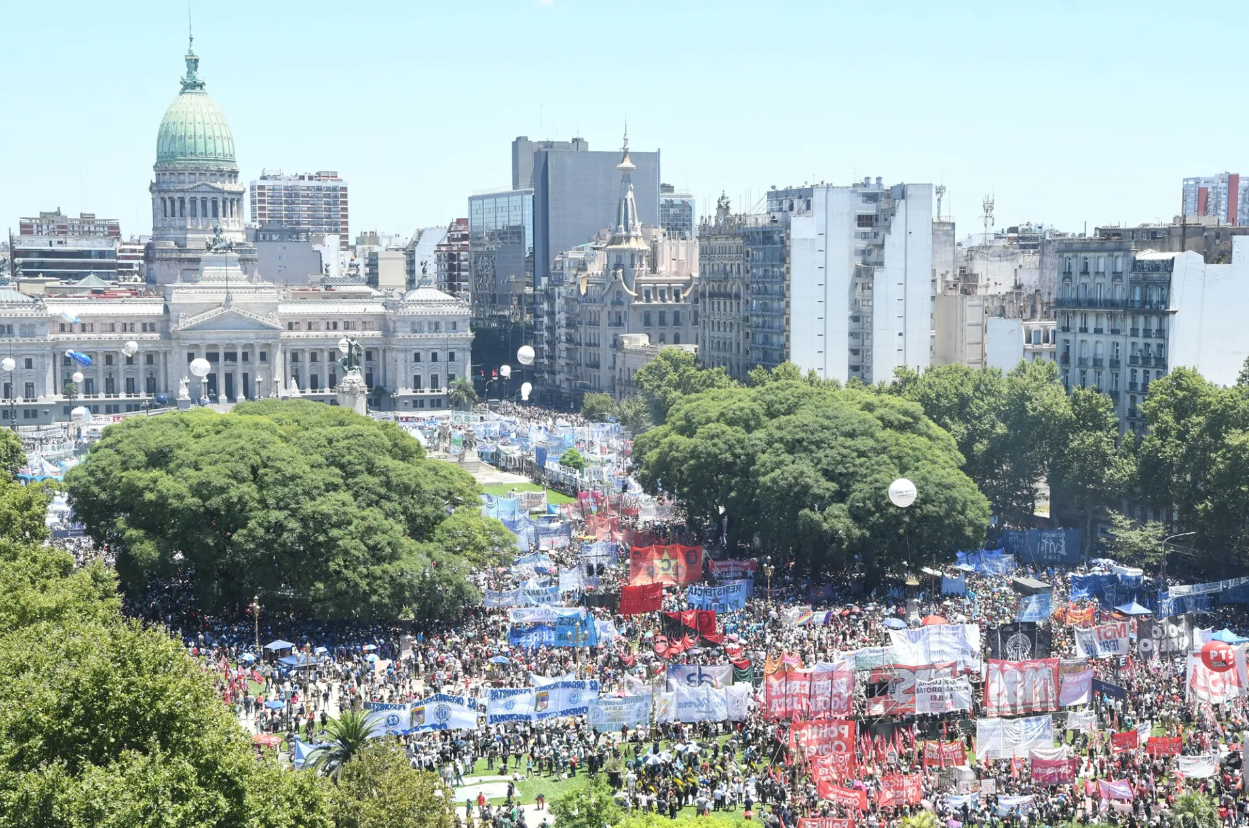The Argentine General Confederation of Labor (CGT) launched a general strike to protest the policies of President Javier Milei's government.

The CGT made the decision after police cracked down on protesters demanding the government provide funding for communal kitchens for the poor. This is the second time since far-right President Milei took office on December 10 last year.
Argentina's largest union also called on people to march on May 1, International Workers' Day, and said it would join a march called by the National University Union Front on April 23 to defend public education.
On January 24, 45 days after President Milei took office, tens of thousands of Argentine workers participated in a general strike launched by the CGT in the capital Buenos Aires and many provinces to protest the government's harsh austerity policies.
Since taking office in December 2023, President Javier Milei has implemented a fiscal adjustment plan that includes drastic cuts in public spending to achieve financial balance. Immediately after being formed, President Milei's government announced a 50% devaluation of the local peso; reduced the number of ministries from 18 to 9; laid off many public sector workers; reduced subsidies for public transport and health care; reduced central government budget allocations to provinces and stopped bidding for infrastructure projects using the state budget.
In the first quarter of this year, the Argentine government laid off 50,000 public sector workers and confirmed that it would continue to cut another 70,000 in April. The layoffs, combined with double-digit inflation, have made life difficult for workers, reduced purchasing power, and led to strikes and protests across Argentina.
Argentines’ real incomes have been falling amid the economic downturn and high inflation. Inflation remained at 11% month-on-month in March and rose to 287.9% year-on-year in March 2023.
With sharp cuts in public spending, President Milei's government has set an ambitious target of achieving a budget surplus equivalent to 3% of GDP in 2024. However, the "belt-tightening" policies have caused disagreements between the central government and provincial governors because local budgets for education, health care and infrastructure construction have been cut.